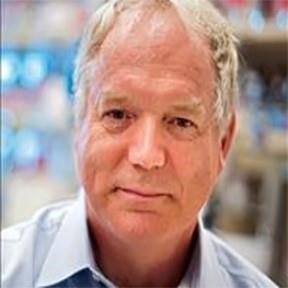EDMONTON — A University of Alberta researcher has been awarded this year's Nobel Prize in medicine — the first time Canadian medical science has been so recognized in nearly a century.
Michael Houghton, 69, of the university's Li Ka Shing Institute of Virology, is one of three recipients of the Nobel Prize for Medicine or Physiology for the discovery of the hepatitis C virus.
"It's a great honour," Houghton said following the announcement Monday.
"I'm really happy that I got it while I was at the University of Alberta. They've been a wonderful host for me."
Houghton not only helped identify and isolate the virus, he and his colleagues have developed a vaccine soon to enter clinical trials that could lead to the end of a scourge that kills 400,000 people a year. It's an example of how Houghton says basic science and real-world applications should be combined.
"You need basic research, but you have to use the information that basic research is producing. I would like to see a lot more effort applying our current knowledge to disease."
He said the world's current struggles with COVID-19 show that viral diseases are going to be an ongoing challenge. Drugs to treat infection are important, he said, but the only way to stop a pandemic is with a vaccine.
"These viruses are a permanent threat. We need diagnostics. We need antivirals and we need vaccines. We have to have a vaccine to stop pandemics."
Canada can be better prepared for future pandemics, Houghton said.
"Canada needs a manufacturing facility. We need to be able to manufacture our own diagnostics and manufacture vaccines and drugs."
Houghton deplored skepticism currently surrounding science that leads people to avoid measures such as wearing masks or even getting a flu shot.
"As a virologist, I've been disappointed that not everyone has been willing to take very basic precautions to try and prevent COVID. I think Canada has responded extremely well, but it is disconcerting when you see not everyone doing what you know makes sense."
Houghton, born in the U.K., shares the prize with Americans Harvey Alter and Charles Rice.
The Nobel Committee noted that the men's work identified a major source of blood-borne hepatitis that couldn't be explained by the previously discovered hepatitis A and B viruses. The hepatitis C virus, which affects millions worldwide, causes chronic disease and is a major cause of liver cancer and cirrhosis requiring liver transplants.
The work of Houghton and his colleagues, dating back to the 1970s and 1980s, has helped saved millions of lives, it said.
"Their discovery also allowed the rapid development of antiviral drugs directed at hepatitis C. For the first time in history, the disease can now be cured."
Houghton's award won a shout-out from Canada's chief medical officer of health, Dr. Theresa Tam, during her daily COVID briefing.
"The discovery of the virus was extremely important for the discovery of treatments and other ways of managing hepatitis C," she said.
It's the first Nobel for a medical researcher at a Canadian institution since Frederick Banting won in 1923 for the discovery of insulin, said the virology institute's director, Lorne Tyrrell.
"Canada is so very proud to have their second (medical) Nobel Prize winner," he said. "We've waited a long time."
Charles Huggins, who was born in Halifax but spent most of his career in the U.S., won a medical Nobel in 1966 for his work on cancer treatment.
The Nobel Committee couldn't reach Houghton at first to tell him he'd won. It was Tyrrell who finally reached him in California, where Houghton also works.
"I was so excited when I saw the announcement. I waited a few minutes because I thought the Nobel Committee might be talking to Michael. I phoned him about (4:15 a.m.) to say ... 'You've won the Nobel prize.'"
The prestigious Nobel award comes with a gold medal and prize money of 10 million Swedish kronor (more than US$1.1 million), courtesy of a bequest left 124 years ago by the prize's creator, Swedish inventor Alfred Nobel.
Monday's medicine award is the first of six prizes being announced through Oct. 12. Other prizes are for outstanding work in physics, chemistry, literature, peace and economics.
This report by The Canadian Press was first published Oct. 5, 2020
— With files from The Associated Press
Bob Weber, The Canadian Press

